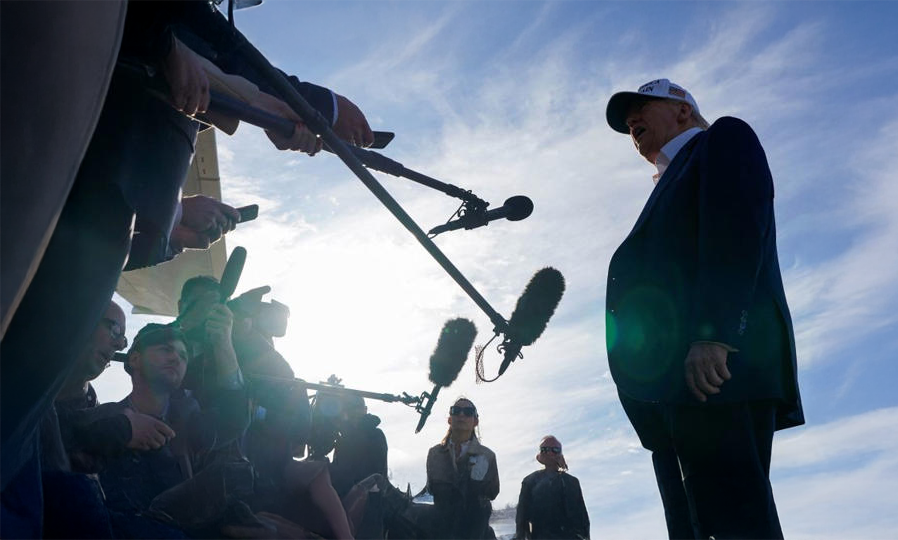
Washington, D.C. — President Donald Trump announced a significant postponement of tariffs on European Union imports, shifting the imposition of a planned 50% levy from June 1 to July 9. The decision follows a call between President Trump and European Commission President Ursula von der Leyen, signaling a potential pivot toward negotiation rather than confrontation.
The tariff threat, which had sent signals of uncertainty across global markets, marks the latest instance of an assertive trade stance being softened in favor of dialogue. Trump had previously declared that the EU would face a steep 50% tariff following an earlier announcement of a 20% reciprocal tariff, which itself had been delayed. With the latest postponement, all eyes now turn to the potential for substantive negotiations ahead of the new July deadline.
Trump’s comments from Morristown Municipal Airport suggest von der Leyen personally requested the extension, expressing a readiness to engage in expedited and serious negotiations. Minutes later, Trump took to Truth Social to affirm that talks between the United States and the EU would begin promptly. Von der Leyen echoed the tone of collaboration in a separate statement, highlighting the strength and global significance of the transatlantic trade relationship while underscoring the need for time to reach a fair and meaningful deal.
The announcement reverberated through international markets, with several Asian indices responding to the news. Japan’s Nikkei 225 gained as much as 0.8%, South Korea’s KOSPI rose 0.9%, and China’s Shanghai Composite Index edged up 0.3%. Other regional markets, including Taiwan and Australia, remained relatively flat, while Hong Kong’s Hang Seng Index declined by 0.3%. The measured uptick reflects cautious optimism among investors, who now await further developments from both sides as July 9 approaches.
Central to Trump’s ongoing trade philosophy is his stance against what he deems “non-monetary trade barriers” and a persistent focus on reducing trade deficits. The United States ran a $236 billion trade deficit with the EU in the previous year, a figure frequently cited by the administration in its calls for recalibrated trade terms.
In a separate remark, Trump appeared to align with Treasury Secretary Scott Bessent’s recent commentary suggesting that reshoring textile manufacturing may not be necessary—a statement that diverges from traditional rhetoric on domestic production, hinting at a more nuanced approach to sector-specific trade policies.
As preparations begin for the next phase of talks between Washington and Brussels, stakeholders across industries will closely monitor the tone, substance, and scope of negotiations. The July 9 deadline now serves as a critical marker for what could become a new chapter in transatlantic trade relations. Whether this extension yields a breakthrough or another round of brinkmanship remains to be seen.
The Washington Herald
editorial@thewashingtonherald.com
Washington, D.C.

Be First to Comment